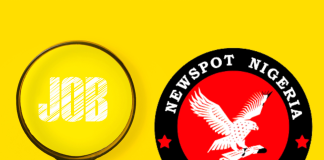By Taju Tijani
“Sixty-five days in chains, weeks of starvation, months of mental torture and, recently, the rides in a steaming, airless Black Maria to appear before a kangaroo court, dubbed a special military tribunal, where the proceedings leave no doubt that the judgment has been written in advance. And a sentence of death against which there is no appeal is a certainty.”
That was one of Ken Saro Wiwa’s last words before he was garrotted by the hangman. His memory lives on as this nation battles with far more injustice even under democratic dispensation. Nelson Mandela spent 27 years behind bars to free South Africa from the pain of apartheid. History will continue to record personalities of courage who could challenge injustice and die trying.
Thursday November 10, 2022, was the 27th remembrance anniversary of the hanging of Ken Saro-Wiwa by former Nigeria’s military dictator, Sani Abacha. Saro-Wiwa was hanged with nine other Ogoni activists on November 10, 1995, for protesting the Sodomisation of Ogoniland through environmental Armageddon.
We should remember that there has been no erection of symbolizing mausoleum for him as point of pilgrimage for activists worldwide. He came, he saw, he protested, he struggled, and he died. Just like Gani Fawehinmi.
In hindsight, history showed that Nigeria in the 90’s was a land under the grip of military machinery and fear. Abacha represented the evil of that decade. He governed to steal and stole to govern. He had an uncanny gift for tyranny and wickedness. Abacha equally had a gift for self-promotion, a gift he used to perfection through Arthur Nzeribe, his paid acolyte in the formation of “Association of Better Life for Nigerians” to promote himself. Worse, he had a gift for unforgiveness, a gift used to diabolical effect by his then unburdened soul that knew no restraint of compassion toward anybody caught in his tyrannical fork.
To Abacha, the obdurate, thick, crabby, crackbrained, and maximum leader, the tools of contest was not reason, consensus and compromise but oil, money, position and brute force. The theatre of his catfight with Saro-Wiwa was the Niger creeks, a terrain rich in the black gold but blighted by environmental degradation and malnourished in civilizational infrastructure. Aside from oil, money was the prime tool of contest. Abacha loved money. He worshipped this mammon. In the 90’s, during his evil reign, all the billions of dollars in oil revenue flowed through his leprous hands. The thief regularly diverted the money to what was known as “extrabudgetary accounts” in Germany, Switzerland, and Lebanon, using proxies. Abacha salted away billions of Ogoni’s wealth in private numbered accounts.
He kept behind some billions used as dirty money to buy Army loyalty and pacified co-opted government officials with oil contracts. To silence one vocal, foreign, anti-corruption, anti-tyranny crusader, Abacha sent his puppeteers to the US to pacify him with our oil wealth. That man was Randall Robinson, the founder, and former President of TransAfrica Organisation.
By this PR disaster, Abacha pioneered and promoted a shaming indictment of Nigeria, the very moment he made a farcical mistake of exporting bribery to America, as a beastly African tool to mollify Randal Robinson, the African American human right advocate. “There are those in Nigeria who want to know how much it would cost to keep you quiet. The offer could go as high as a million dollars,” suggested Abacha’s goon to Robinson in his TransAfrica office. Robinson, a Harvard Law School graduate was stunned. In twenty-five years of his human right advocacy, he had never been offered a bribe. He never expected to be offered one. Such was Abacha’s obsession with power and position that he was willing to export our metastasized corruption across the globe. Abacha may be regarded as a cancerous monster but what catalysed his evil action against Wiwa was the hidden bloody hands of prosperous but dominant American, Dutch, British, French, and Italian oil company partners of the maximum leader.
In Nigeria, the postcolonial modern white masters wear Gucci’s expensive suits of multinational oil company executives who daily cart off the material birth right, first of the Ijaw nation and secondly, of all Nigerians. In 1993 at the first wave of protest by the Ogoni people against the Sodomisation of their land, Shell invited the Nigerian Army. Shell’s invitation of the Army against defenceless Ogoni civilians brought in a new paradigm shift that later morphed into ruthless military force.
By the time the artillery quietened, over two thousand people were murdered, and sixty villages scorched. There were crescendo of outcry by conscience-stricken Nigerians and the international community who were numbed silly by Abacha’s heinous crime against humanity. Others who were scared witless by Abacha’s descent into primitive savagery voted with their passports into exile mushrooming later into fangless NADECO.
Ken Saro-Wiwa, a writer, politician, administrator, and activist had to sacrifice his coveted dignity and enlist in the murky, creeky-war of Ogoni emancipation from foreign exploitation of its oil wealth. Saro-Wiwa, a godlike figure among his supporters, tainted Abacha. His intellectually formidable argument against the rapacious foreign exploiters of Ogoni’s oil wells fell on deaf ears.
Abacha, who in his various depredations drained the treasury, bankrupted this country, and contaminated the values of generation of Nigerians was in no mood to reason. To his depraved mind, such soft-pedalling was career-cum-ambition destructive in the Nigerian military. It is only in Nigeria that a failed and corrupt military institution could impose on its hapless people so obvious a viper as Abacha.
What Abacha did to Nigeria—–crime committed with bare hands as to leave fingerprints—–was unforgivable. His psychiatrically documented capacity for remote savagery would soon give Nigeria its own 10/11. Twenty-four years on, it is hard for me to intellectually expunge the heartless dry ground of Abacharist slaughter of Saro-Wiwa and the other nine Ogoni activists. What still “sparks my head” to borrow Ajegunlesque slang, was Abacha’s neutered conscience; his stunning insensitivity to the pain of the global community who begged for mercy. Then the drama of the death. From the minute Saro-Wiwa got caught in Abacha’s evil fork, he became obsessively wild about his mortal enemy.
Abacha handpicked three of his running dogs to crucify Saro-Wiwa. Government witnesses who took bribe openly confessed. Exculpatory evidence was rejected, and the expected guilty verdict was announced without appeal. Holding on to conviction, Saro-Wiwa made himself the sacrificial steward of the banked anger of the Niger Deltans. He was given no Hobson’s choice. The murder-in-chief, Sanni Abacha, who believed fervently that the only good agitator is a dead agitator, called in the shrouded hangman. Muttering ‘bismillahi’, he made for Saro-Wiwa. As Saro-Wiwa thrashed about desperately in his dingy cell for a miracle remission that might save his life, ha, the man felt the pain of forlorn estrangement. We left him to his fate. Nigerians abandoned him. While pinned helplessly against death’s proverbial door, he called his ancestors to intervene.
They heard. Reprieve came. Only for couple of hours. Then the struggle again with death. Who has ever fought with death and live? None! Know what, Saro-Wiwa did not die. His spirit merely left him. Wiwa still lives. In the hearts and minds of all the desperately oppressed people along the oily creeks. Twenty-seven years on, may his warring soul continue to rest in perfect peace.
Share your story or advertise with us: Whatsapp: +2347068606071 Email: info@newspotng.com
















